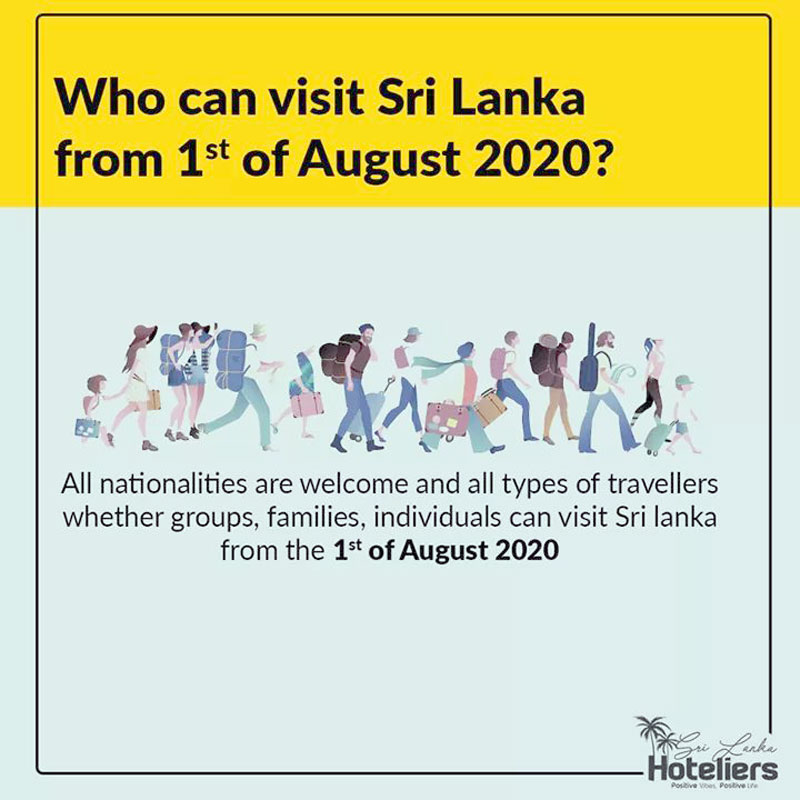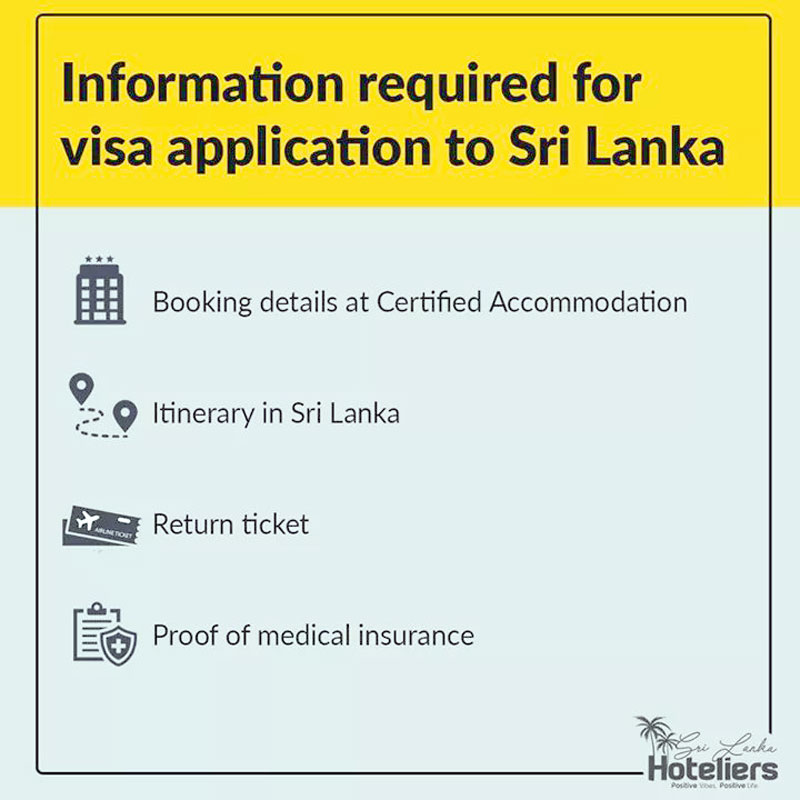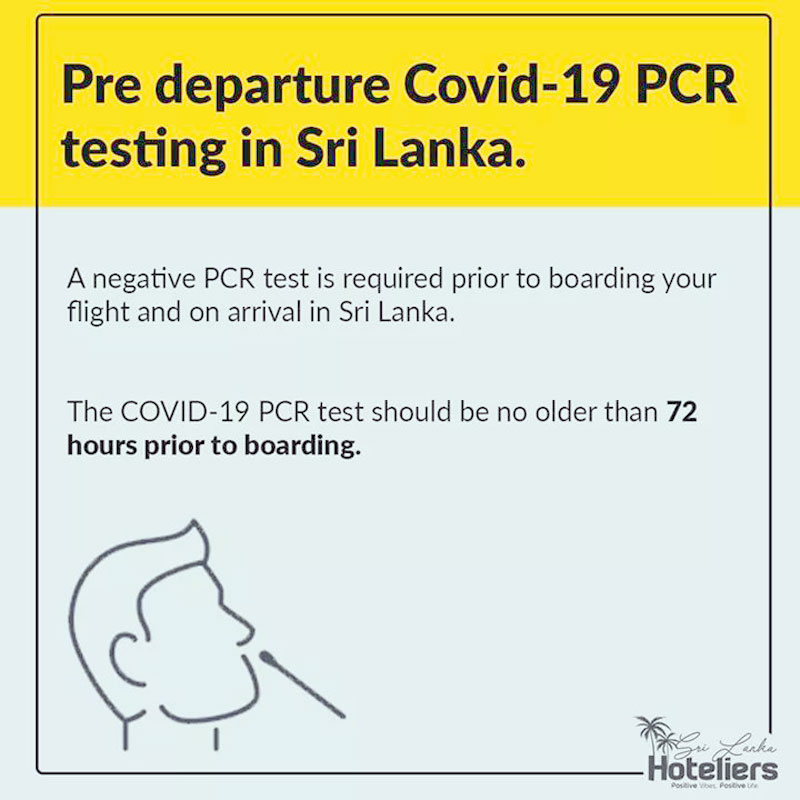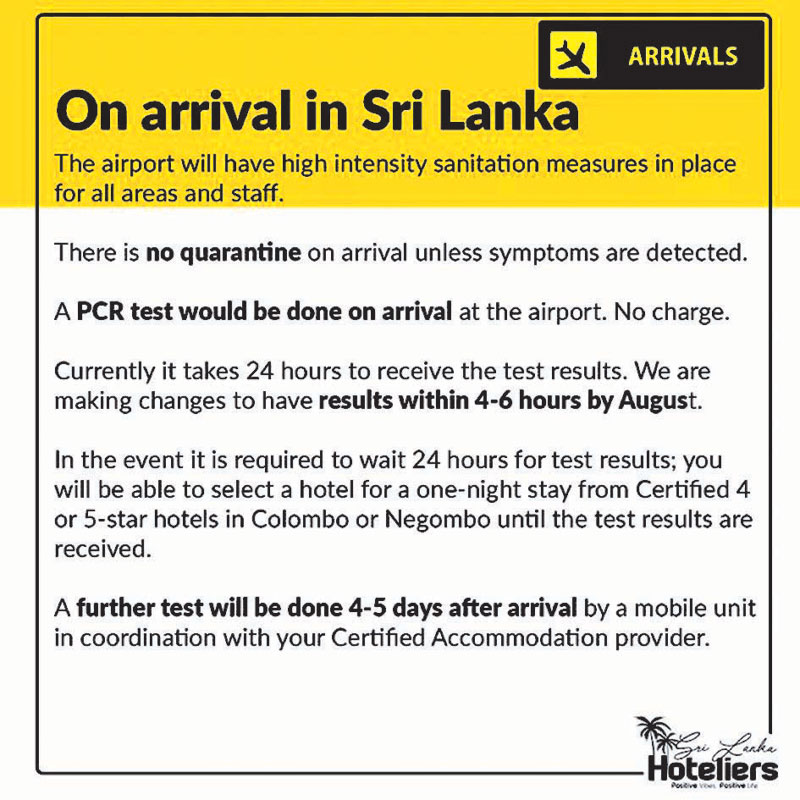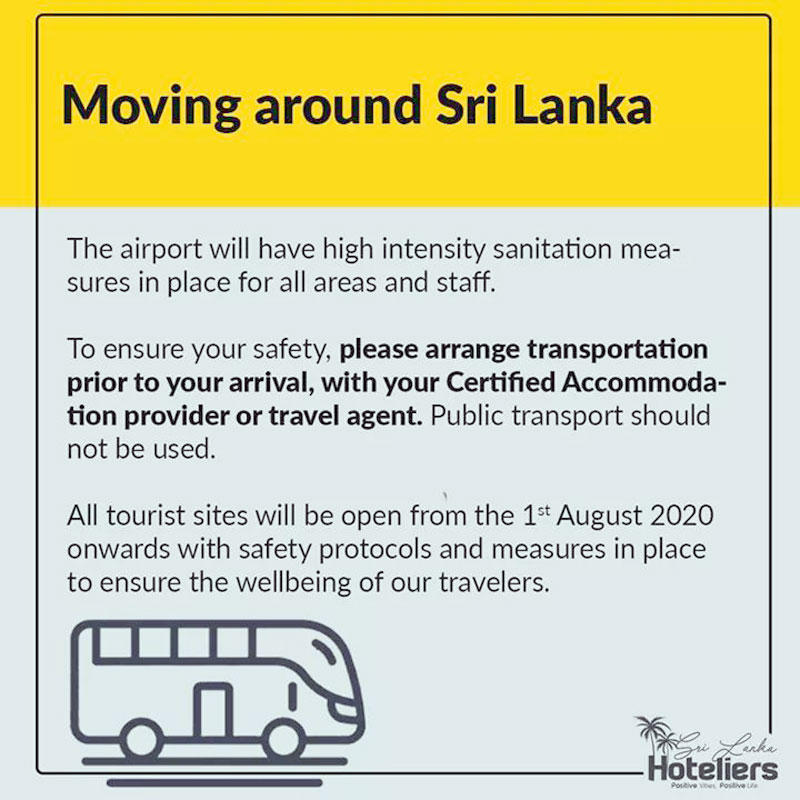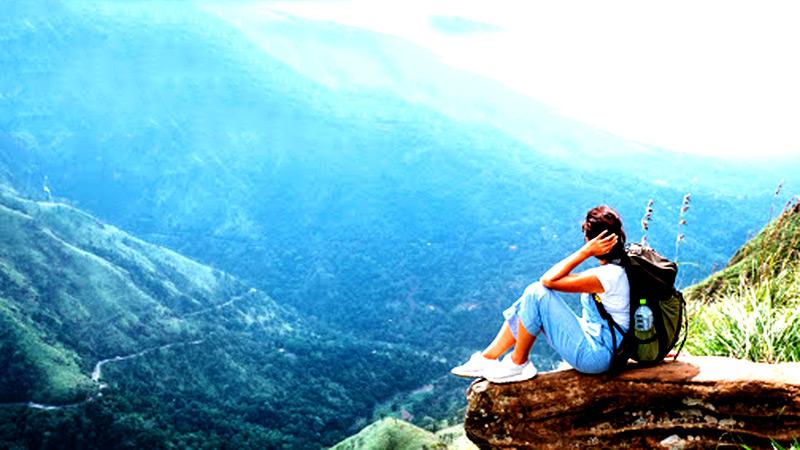
Earlier this week, the Board of Sri Lanka Tourism made the announcement that by August 1, Sri Lanka will be open for tourism again. This has been in response to the successful containment of Covid-19, which the authorities are confident no longer poses a significant threat to society. But, of course, despite this assurance, there are plenty of guidelines in place for accepting tourists from nations that have had a relatively harder time in containing the pandemic.
All those who board flights bound for Sri Lanka are required to have a negative PCR test that is no longer than three days old and must have all paperwork already prepared. This would include booking details at certified places of accommodation, a detailed itinerary of their plans within the country, a return ticket and proof of medical insurance. All visitors will be required to have visas valid for up to 30 days, which, after arrival can be further extended for a total of six months. The price point of a 100 USD may seem steep, but the Tourism Board justifies this as partly covering the cost of the PCR tests and other safety measures.
On arrival, no quarantines will be imposed unless explicit symptoms are detected, and a follow up PCR is done on arrival at no additional charge. Visitors awaiting results are allowed to select a four or five star hotel for an overnight stay but while currently results take 24 hours, changes are being made to speed up the process to as little as four to six hours.
Tourist sites
All tourist sites will be open from the first of August but since public transport should be avoided, transport should be arranged prior to arrival with a certified travel agent or accommodation provider. All visitors are required to stay a minimum of five nights at certified accommodation providers as listed on the Sri Lanka tourism website.
Of course, despite the heavy vetting to actually board a flight, there is no limitation on which nations are eligible to visit regardless of their country’s situation, and the process ensures that no contamination will reach the flight itself, keeping both fellow passengers and the destination perfectly safe. And as the number one country for travel, as ranked by Lonely Planet just last year, people will want to come. However, to assuage people’s fears of travelling, it would be vital to advertise how safe Sri Lanka is to visit.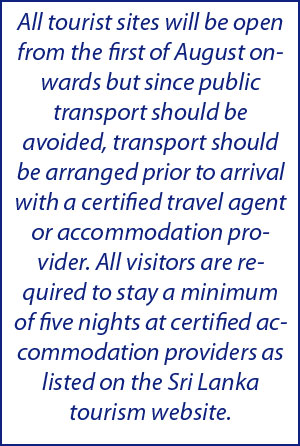
While speaking to Sanath Ukwatte, the President of the Hotels Association, on the matter he emphasised the need for the country to return to normalcy as soon as possible and that Sri Lanka, unlike most countries, is more than ready for it, considering its effective early response. Just 11 deaths, as he mentioned, while tragic, is significant considering the population and the fact that even dengue has been more dangerous during the same time frame. He said that most people are afraid of the pandemic, but that as long people follow the guidelines, like sanitising regularly, not touching the mouth or face and social distancing, there is nothing to be afraid of.
However, despite this assurance, people, including hotel owners, are uncertain. Priyanka, the co-owner of the Mangrove Hotel, a boutique hotel in Nawala, said that in his business, as a four star suite is categorised a guest house more than a hotel, they won’t even be allowed to open under the new guidelines, and are considering just not continuing altogether. Sanath Ukwatte spoke about plans for monetary relief packages from the Government to keep businesses like these afloat as they are vital to the country in the long run.
Some, like Rohan de Silva, General Manager of the Chapelton House, a Colombo hotel, expressed his dissatisfaction with the lacklustre response from authorities like the Tourism Board, stating that there has been no direct communication from anyone on how to proceed and that he has been handling preparations independently because of it. Rohan said that he’s worked hard to build a good rapport with tourists, even from China and is confident he has a lot to bring to the table but says that there has been no support on that front from anyone.
Abeywickrama, the owner of City Beds the Regent, another Colombo hotel, is more reconciled to the situation, trusting the authorities to make the right calls. He is happy with the approval Sri Lanka has got for our hospitality in the face of the crisis and is positive that it will help jumpstart tourism in the country. He likens this situation to be similar to the Easter bombings last year and thinks that things will be just as hard to recover from.
Gamini Seneviratne, General Manager of Sayura House, a Colombo hotel, believes that regardless of the state of the countries that tourists come from, it is our responsibility to manage any problem they pose with the right precautions. He believes the pandemic will continue for another two years at least and has his concerns that maybe August is too early to open the country for tourism. He said that most will still be afraid to travel and that a lot of marketing is necessary to appeal to prospective tourists but so far, what has been done has been the bare minimum.
Ultimately, this move to reopen tourism is another step towards bringing Sri Lanka back to something resembling normalcy. This is an especially big step, considering the importance of tourism to our country. However, despite this, it should be noted that things are not likely to be exactly the same as they used to be as strict guidelines will still be in place for the foreseeable future.
